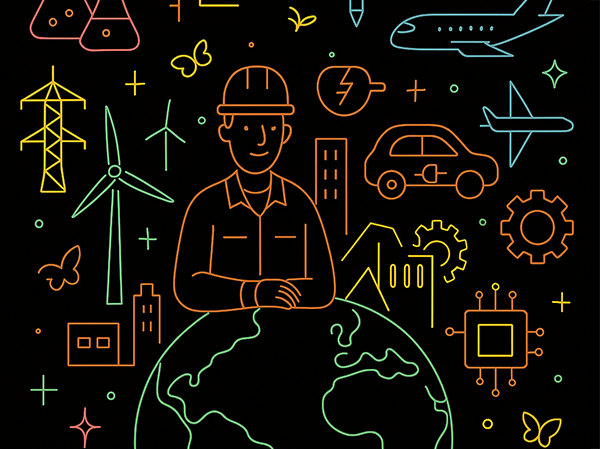A product manager's day-to-day activities involve a mix of strategic planning, team collaboration, and user-focused tasks. I work to prioritize product and product features, review roadmap timelines and goals, and ensure products align with the overall company vision for growing EV Charging adoption. I regularly meet with cross-functional teams, including engineers, designers, and marketing, to discuss progress, resolve issues, and gather feedback. Additionally, I analyze market trends and user data while collecting direct feedback from customers to make informed decisions, prioritize features, and adjust the product roadmap. Communication is key, so I often engage with stakeholders to update them on progress and gather input. Ultimately, a product manager ensures that the product development process runs smoothly and delivers value to users.
Starting in grade school it was obvious that I was a builder and creator. I loved to draw, paint, and do arts and crafts. But when my dad gave me my first junior circuit board, a new type of creating was introduced in my life. As I grew older, I also developed an interest in math and science and by the time I enrolled in my first physics class, I could finally apply math to science and understand how to create things. Naturally, the delight I found in creating combined with my passion for math and science pushed me towards engineering.
I did my undergraduate degree in Electrical Engineering at University of California, Davis. I also have an MBA from UCLA with a specialization in Technical Management.
Most of my days are spent aligning on:
I get to get make new products that people interact with everyday!
My proud moments have been seeing customers using my product out in the world. Whether seeing my product on a billboard or an online advertisement, I always feel a sense of pride knowing that me and my team made that product a reality.
I have been rejected by schools and jobs, I’ve had to work with difficult managers, coworkers, and customers. I’ve spent hours in the lab trying to figure out the smallest issue that is stopping the whole design from working. I’ve faced sexism many times in this male dominated industry but through it all I’ve taken it one step at a time. Just like with an engineering problem, sometimes you have to just have to take a step back and think, “Ok, that didn’t work, but what is the next step that I can try?” It’s also important to ask for help!
I married my husband in September 2015 and we currently have three dogs. We were introduced by a good friend of ours (and fellow electrical engineer) in our last year of undergraduate school. My husband is a Mechanical Engineer and also works in the automotive world. My dad and brother also studied engineering!
Career-wise I love product management and want to continue building cool products. I'd love to continue growing in this field and take more products with complex problems to solve.
Many people have helped encourage me and mentor me over the years. My dad has probably been the person that has helped influence my career choices the most, doing whatever it took to introduce me to people and career options. My mentors in high school and college have also had a great influence on my views and opinions of the world. I still appreciate the encouragement and advice from them. Additionally, in my career I have always sought out the mentorship to help guide me through my current and future roles!
Just because you might not fit the stereotype of what a “typical engineer” is doesn’t mean that you can’t be an engineer. Don’t be afraid to be smart, take risks, try something new (that’s what engineering is all about!), and learn how you learn!
Outside of work I like to volunteer, travel, play with my dogs, paint, crochet, and do yoga.


